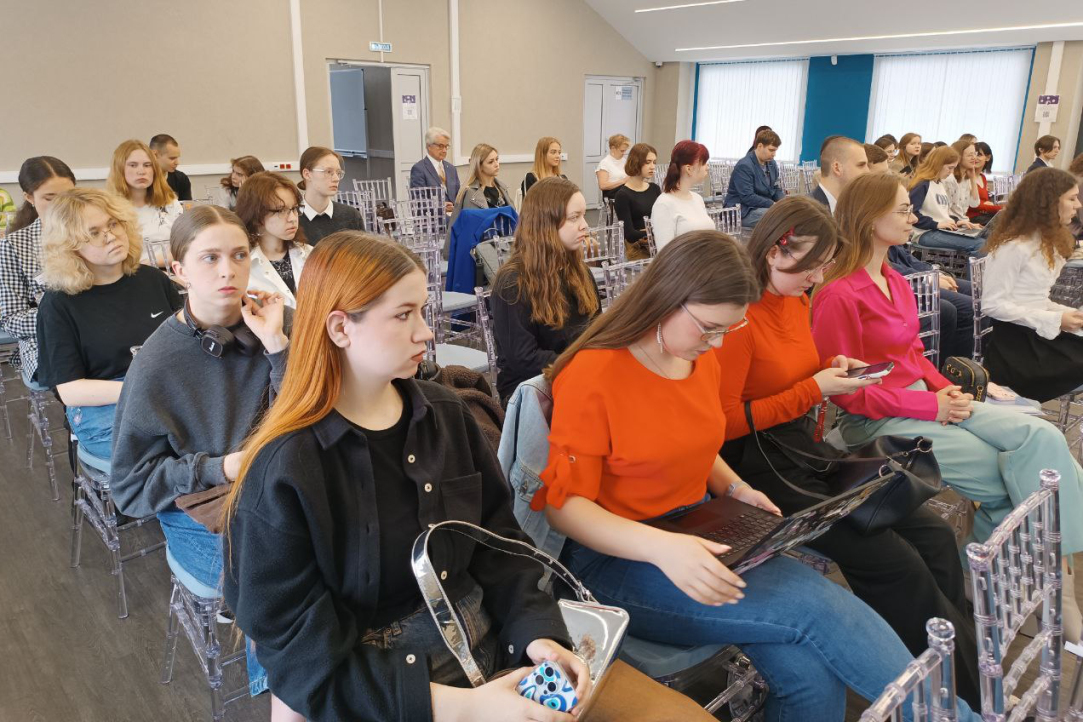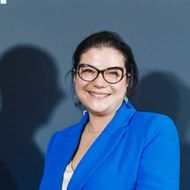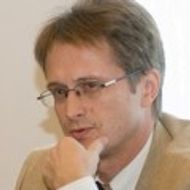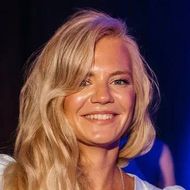IX All-Russian Scientific Student Conference: Supporting Early-Career Scientists
The IX All-Russian Scientific Student Conference has taken place at the Nizhny Novgorod campus of HSE University, bringing together almost 200 early-career researchers and experts from 14 cities across Russia, from Kaliningrad to Vladivostok, as well as representatives from the African continent.

The conference ran for two days across 15 sections. Early-career researchers presented 179 reports in a range of fields including public, private, and criminal law; fundamental, applied and computational linguistics; marketing; management; design; finance and corporate development; economics and data analysis; philology; computer science and technology; fundamental and applied mathematics; and educational technologies.
The main aim of the conference was to foster the potential of early-career researchers, inspire interest in scientific work, and support them in finding their path in academia with the encouragement of like-minded individuals.
Anna Blyakhman, Director of HSE Campus in Nizhny Novgorod

Science is perhaps one of the few areas of professional activity where one can experience the full range of the most intense emotions—from passion and inspiration to frustration and disappointment. At our conference, among other things, we aim to share the emotions that science brings with researchers at the start of their careers. We hope this will increase the number of students who wish to pursue an academic career, continue their research endeavours, and allow us to celebrate their successes.
Vadim Radaev, HSE First Vice Rector

There have always been and will always be young people eager to engage in science, and their number is not diminishing. However, a scientific career is a challenging path that requires long-term investment in oneself and one's work to build a reputation and begin earning. Therefore, it is so important to support early-career researchers. They need material, professional, and personal support: offering them exciting opportunities, integrating them into research teams where senior and junior scholars move forward together.
Conferences such as this play an important role in this process: firstly, they require preparation and the presentation of tangible results. Secondly, they provide feedback from other researchers, allowing one to identify mistakes—a vital stimulus for development. Thirdly, conferences offer the chance to meet interesting people and establish contacts that can lead to collaborations and joint research projects
During the plenary sessions, participants discussed a wide range of issues relating to financial and administrative support for young scientists, as well as the development of mechanisms to attract young people into science. Attendees highlighted the importance of expanding grant programmes, with more than 60 million roubles allocated to such initiatives in 2024 alone. There are also additional named scholarship programmes, including the Yuri Neymark Scholarship for IT specialists. One of the grants awarded to HSE by the Nizhny Novgorod Scientific and Educational Centre was used to develop a software product for analysing digital X-rays, significantly improving the quality of medical diagnostics.
In addition, targeted funding for scientific trips and the improvement of institutional mechanisms for scientific collaboration could become effective tools for supporting early-career researchers. In this regard, the conference included the Young Researcher School, where students were trained in public speaking skills for participation in science outreach events. They also learned how to choose a relevant research topic, formulate the aim and hypothesis of a scientific study, and develop a plan and key stages for preparing a student research competition application.
As part of the conference, a paper competition was held within each section. The jury—composed of lecturers and researchers from HSE University–Nizhny Novgorod, as well as invited experts—selected the best presentations, whose authors were awarded certificates and prizes. Moreover, the winners of the competition, who were in the final or penultimate year of their bachelor's studies, received the maximum score in the portfolio competition, thereby improving their chances of admission to a master's programme in their chosen field.
Viktoria Pavlova, fifth-year student of the Law programme, 1st place in the ‘Criminal Law and Procedure’ section

‘The topic of my research was “Medical Error from the Perspective of Criminal Law: Past, Present, and Future.” It was extremely interesting to study the history of criminal liability for medical errors in Russia and to reflect on how artificial intelligence and digital technologies might impact the criminal qualification of a doctor’s actions when an error is committed.’
The overall trend towards digitalisation, automation, and the increasing use of intelligent systems in the modern world was also reflected in the themes of many other presentations, most of which explored the application of artificial intelligence and machine learning across various fields. The papers showcased the active use of modern digital technologies such as computer vision, data analysis, and cloud computing. Some researchers also demonstrated an interest in the ethical and social aspects of technology, raising questions about the ethics and security concerns associated with the use of AI.
Many studies were conducted at the intersection of technical disciplines and the humanities—for example, music and computer science, or business, ethics, and information technology. Experience from one area was often applied to solve problems in another, such as the use of mathematical methods in conducting audits.
The IX All-Russian Scientific Student Conference at HSE University–Nizhny Novgorod once again confirmed its importance as one of the key events supporting and developing early-career researchers. The conference served as a stimulus for new research, collaborations, and discoveries. The organisers are confident that the participants will maintain their interest in science and continue to actively develop their projects.

